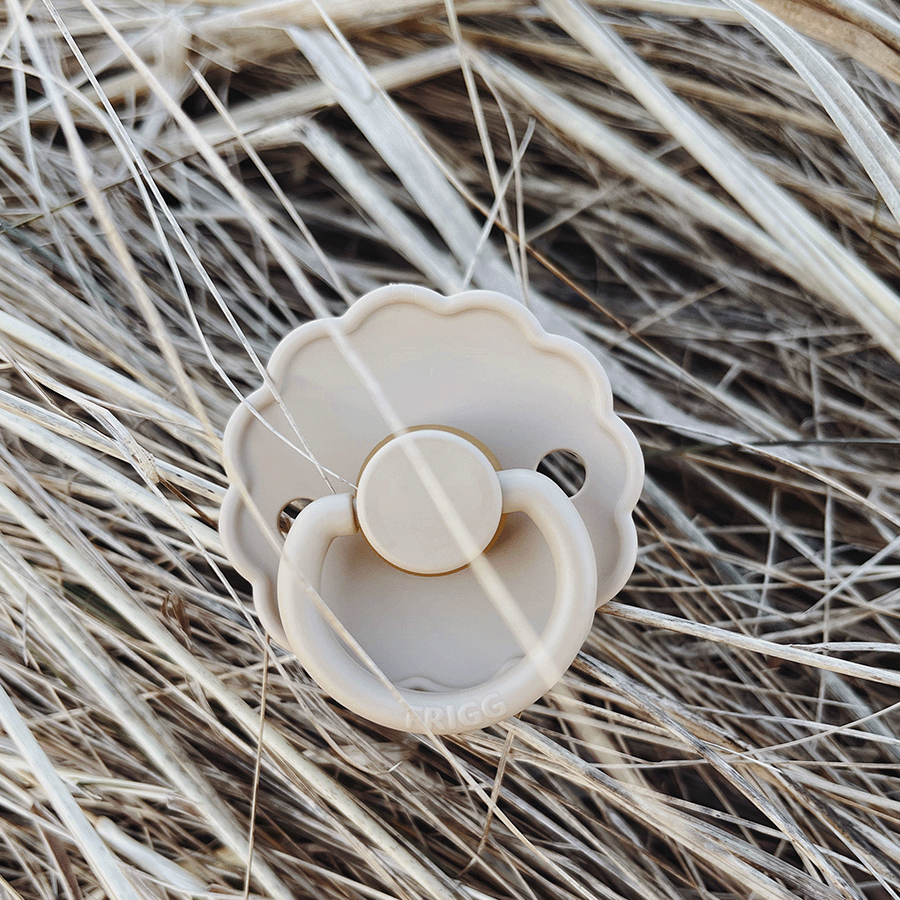
6 things that shorten your FRIGG pacifier’s shelf life
During the pacifier’s short life, it is scalded, chewed, tugged, thrown on the ground, and exposed to several other things you may not have imagined. This gives the pacifier a limited shelf life.
We therefore recommend you replace the pacifier after 4-8 weeks of use. However, there are six conditions that can either extend or shorten the shelf life of the pacifier.
Also read: When to replace your FRIGG pacifier
The following can reduce the life of your FRIGG pacifier:
-
How you store your baby’s pacifier
-
The light and heat can affect the durability of the pacifier. So always make sure you keep clean pacifiers dry, shaded and not too hot.
-
How you clean the pacifier. It is important to clean the pacifier properly. Poor cleaning can damage the pacifier. That means: Do not ever boil it, and do not put it in the washing machine nor use detergents to clean it.
How many pacifiers should you have in use at a time?
If your baby constantly has 5-6 pacifiers in circulation, each pacifier will obviously be used less. With FRIGG’s natural rubber pacifiers, we recommend that you always have several pacifiers on the go at a time and that you replace them regularly. Natural rubber expands over time – unlike silicone.
How often does your child use the pacifier?
The more your baby uses the pacifier, the faster it will wear out. Likewise, there can be a big difference from child to child in how strongly they suck on the pacifier. A strong suction can significantly reduce the durability of natural rubber pacifiers.
Does your child chew on the pacifier?
Some children start biting the pacifier when they get teeth. It is both a fun and comfortable feeling for the baby – but unfortunately pacifiers can’t withstand sharp milk teeth.
Also read: If your child bites through the FRIGG pacifier
NB! There’s a difference in the durability of natural rubber and silicone. Natural rubber is a 100% organic material and has a shorter durability than silicone. Read more about the two materials in our blog post.


